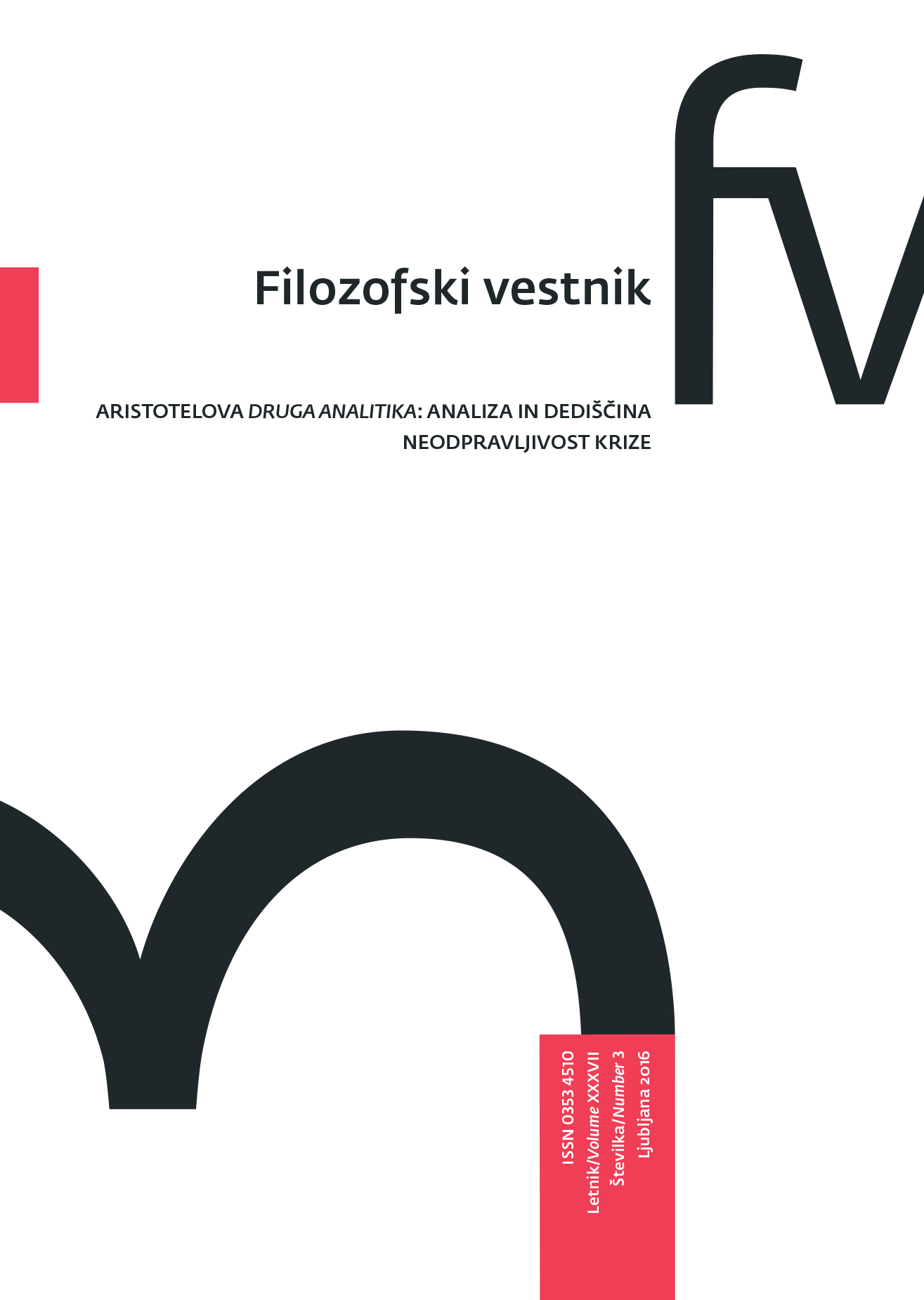Kriza in izredno stanje
Ključne besede:
kriza, izredno stanje, cikličnost, nepovratnost, deteritorializacija, postproduktivni kapitalizem, moderna, postmoderna, mesijanstvoPovzetek
Avtor v članku nadaljuje razpravo o transformaciji pojma krize od cikličnega k nepovratnemu, in sicer v smeri Jamesonovega branja Arrighijeve teorije krize znotraj sistemskih ciklov akumulacije. V tem kontekstu znova pokaže, da finančna in dolžniška kriza, ki se je začela leta 2008, označujeta mejo cikličnega ponavljanja krize, saj zaradi različnih vzrokov nov produktivni cikel akumulacije kapitala ni mogoč. Na tej točki avtor uvede nov koncept, imenovan postproduktivni kapitalizem, s katerim poskuša konceptualizirati natanko razliko današnje krize glede na krize v preteklih zgodovinskih obdobjih. Na tej osnovi članek nadalje pokaže razliko med antičnim, modernim in postmodernim pojavom krize, pri čemer vsakemu od treh pripiše ustrezajočo časovnost (naključnost, cikličnost, a-cikličnost). V sklepnem delu pa članek te nastavke poveže še z Benjaminovo-Agambenovo teorijo izrednega stanja in pokaže, kateri tip izrednega stanja ustreza današnji postmoderni obliki krize.Prenosi
Podatki o prenosih še niso na voljo.
Prenosi
Objavljeno
2017-01-18
Kako citirati
Nedoh, B. (2017). Kriza in izredno stanje. Filozofski Vestnik, 37(3). Pridobljeno od https://ojs.zrc-sazu.si/filozofski-vestnik/article/view/4884
Številka
Rubrike
Neodpravljivost krize
Licenca
Avtorji jamčijo, da je delo njihova avtorska stvaritev, da v njem niso kršene avtorske pravice tretjih oseb ali kake druge pravice. V primeru zahtevkov tretjih oseb se avtorji zavezujejo, da bodo varovali interese založnika ter da bodo povrnili morebitno škodo.
Podrobneje v rubriki: Prispevki





